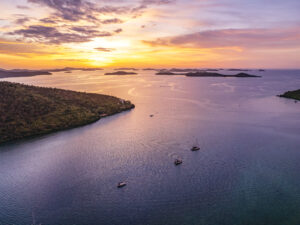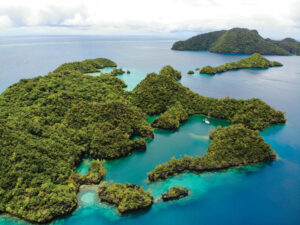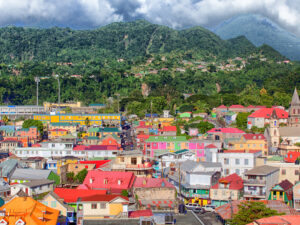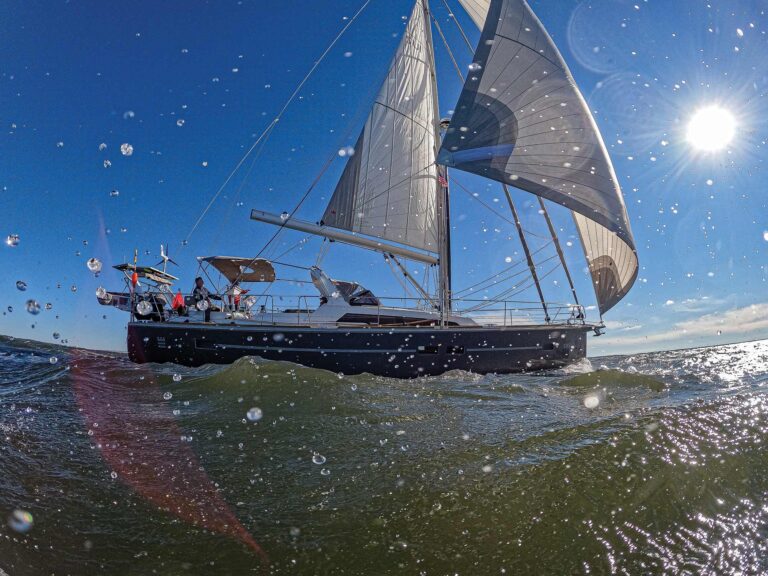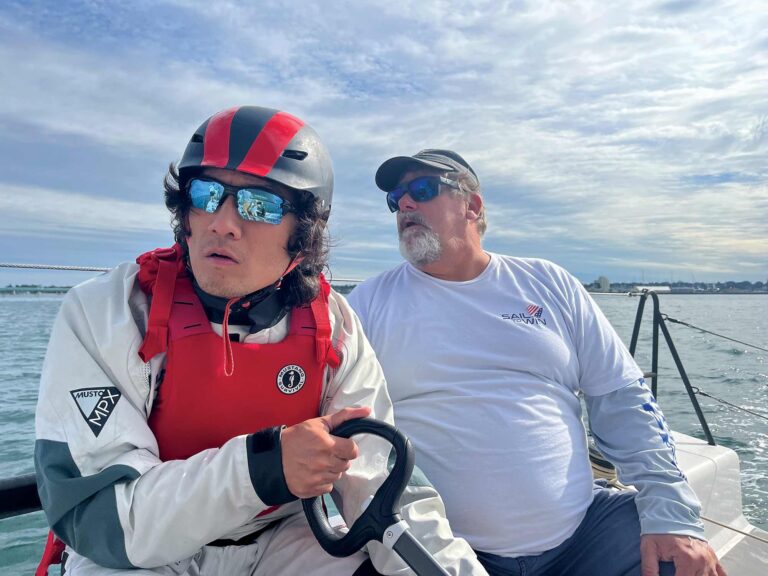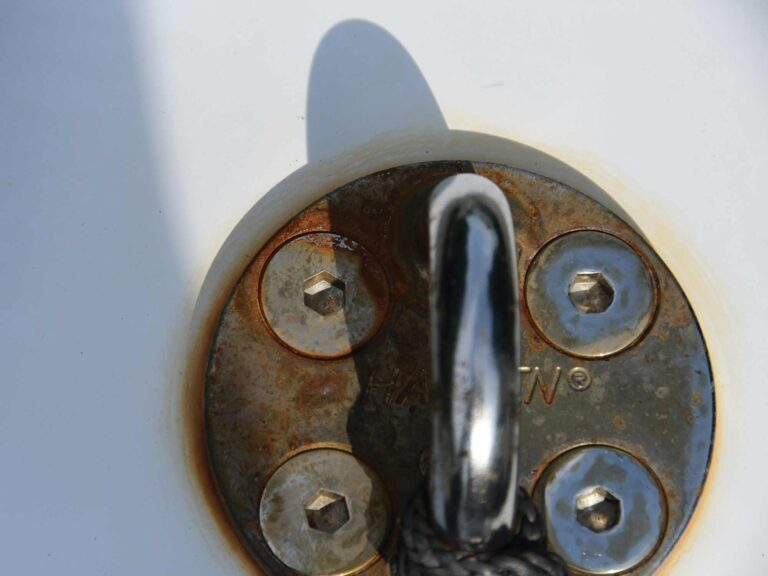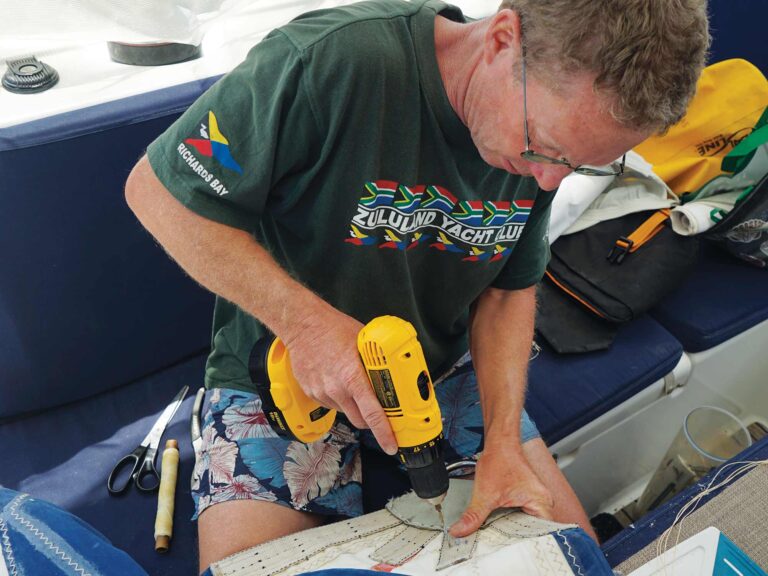
crew.jpg
The distance between Lagos, Portugal and Rabat, Morocco is roughly 200 nautical miles. The first third and last third of the trip had very light breeze but from Friday around midnight to Saturday around noon we saw upwards of 25 knots and gusts in the 30s. After motor-sailing for most of Friday afternoon we went almost immediately to a double reef and stays’l, trucking at around 6.5 knots.
Ben estimated the seas at 20 feet an my stomach can attest they were steep, sloppy, and very confused. Luckily I was the only one to get really sick and Ben and Nate took very good care of me.
I knew AIS was great technology, but I did not fully appreciate it before crossing the shipping lanes that come out of the Strait of Gibraltar from the Med. It gave us comfort to see the speed, direction, closest point of approach and name of vessels more than 10 times our size. We made a few small changes to our course to make sure we’d stay out of their way but were able to stick to the rhumb line pretty closely.
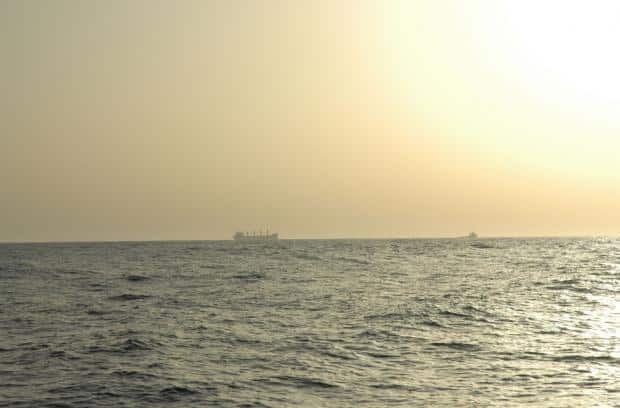
We encountered one large ship apparently void of AIS. After hailing without reply, the vessel approached us quickly, passed astern of us, then immediately proceeded to shut off its running lights and power away. Pretty creepy in the middle of the night.
The water temperature rose throughout our sail, from 71˚ Friday afternoon to 86˚ on Saturday. The phosphorescence was beautiful and when we had dolphins around they were lit up in the water.
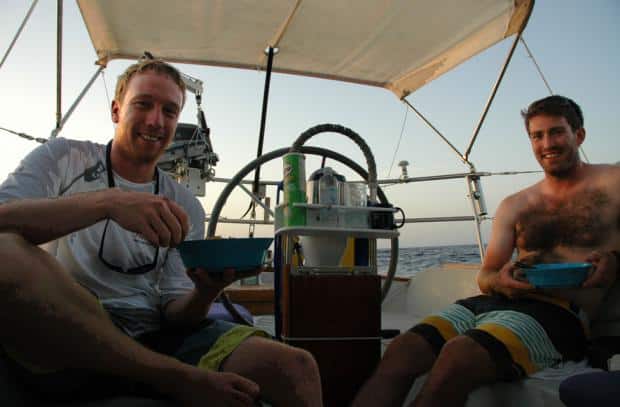
About three hours before dawn, the phosphorescence really saved us. I was sleeping on the port settee when I heard Ben turn off the engine. “Guys,” he called down the companionway, “we’re on a net.”
Twenty six miles off Rabat, the water is strewn with fishing nets. If you see blinking red and green buoys, do NOT mistake them for navigational aids and go between them: they mark the edges of the nets. Sometimes it’s a red or green and a white buoy. With the city lights of Rabat just appearing in front of us, it was difficult to make out what was on land and what was in the water. If you could see one blinking light, you had to strain your eyes to find the other end of the net, and sometimes we never did. Ben saw a line of phosphorescence light up in the water on either side of the boat as the keel hit the edge of the net, and amazingly reacted fast enough to kill the engine before everything wrapped itself in the propeller. The net had cleared the prop but was stuck on our rudder when Nate and I got on deck.
Everyone clipped in and Ben attempted to push the net down with the boat hook but it wasn’t long enough to clear the rudder. Eventually we cut the top floating bit of the net and motored forward and the rest of the net slid down off the rudder. Success!
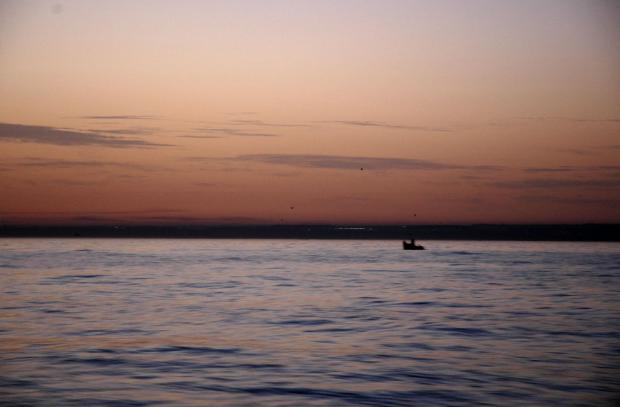
The next five hours were spent with two people on deck at all times watching for more nets which thankfully we did not catch. We were, however, very ready to be ashore and get some real rest!
Click here to read the previous post from Lagos, Portugal.
Click here to read the next post, Sailing into Rabat, Morocco.


